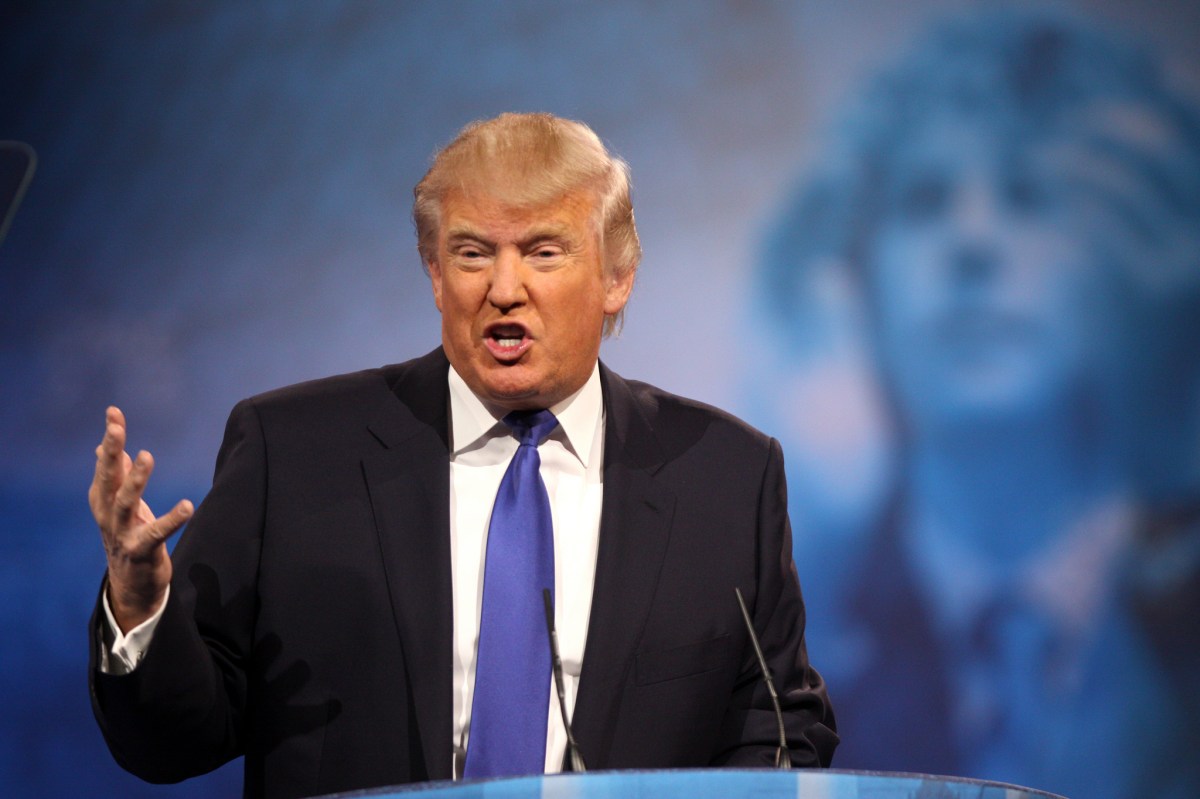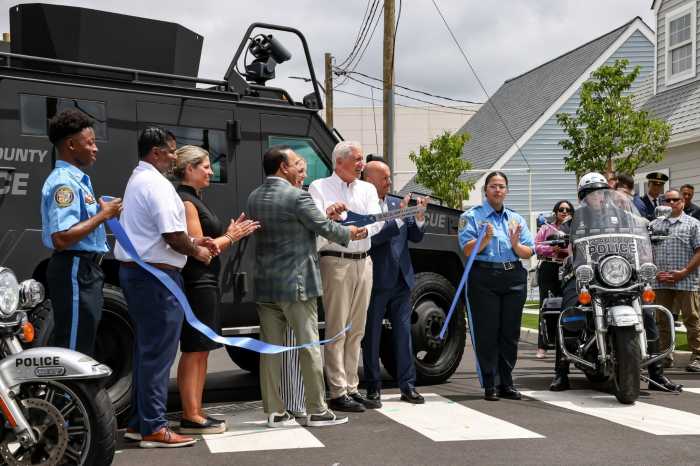By Arnold Dodge
“Stupidity combined with arrogance and a huge ego will get you a long way.”
-Chris Lowe
Fresh off his stunning triumph in South Carolina and heading into the Nevada caucuses with his ego on steroids, Donald Trump is planning to run the table and knock all those losers out of his way to the White House. Thinking ahead like the great executive he claims to be, he’s already got his people working on his inaugural address and we’ve obtained an exclusive look at an early draft.
He plans on delivering a barn burner that will levitate the citizens to places they’ve never been before.
Trump has ordered his handlers to produce a speech that fits his style yet sounds presidential. Key phrases and quotes from previous presidents have been forwarded to his trailer, the one he uses while on the road (flown in by helicopter for photo ops). He responds to each item and his ghost writers weave his responses together to create the inaugural address of a lifetime.
Inside sources have revealed the work in progress, including the original material and Trump’s reactions.
Maya Angelou read a poem before President Obama’s inauguration, which included these lines:
“Freedom shines. A loud bell tolls the moment. We are astride a wondrous day.”
Trump favors inviting Ted Nugent to share some of his thoughts, including: “I have busted more hippies’ noses than all the narcs in the free world.”
From President John F. Kennedy’s stirring command: “Ask not what your country can do for you, ask what you can do for your country.
Trump’s reply: “Asking is for low energy people. Just take it.”
President Franklin D. Roosevelt consoled an anxious America: “The only thing we have to fear is fear itself.”
Trump’s version: “Fear is a great motivator. All my employees are afraid of me, and I’m a billionaire. The only thing to fear is not having a pair.”
During the Civil War, President Abraham Lincoln delivered his Gettysburg address: “Four score and seven years ago our fathers brought forth on this continent, a new nation, conceived in liberty, and dedicated to the proposition that all men are created equal.”
Trump interpreted it this way: “Fourteen months and five days ago I wasn’t even a politician. Now I’m the kick-ass president. Lincoln, who I knew personally, had some great lines. All men are created equal. The women? They love me.”
President Woodrow Wilson defended the Bill of Rights: “I can imagine no greater disservice to the country than to establish a system of censorship that would deny to the people of a free republic like our own their indisputable right to criticize their own public officials. While exercising the great powers of the office I hold, I would regret in a crisis like the one through which we are now passing to lose the benefit of patriotic and intelligent criticism.
Trump’s interpretation: “Whatever.”
President Ronald Reagan enunciated his conservative principles this way: “Government is not the solution to our problems, government is the problem.”
Trump’s response: “I’ll tell you what the problem is: China is ripping us off. Mexico and Japan are robbing us blind.”
President Bill Clinton explained what went on in the Oval Office: “I did not have sex with that woman . . .”
Trump would put it this way: “I did have sex with that woman.”
In President James Monroe’s inaugural address, he said: “It is by a thorough knowledge of the whole subject that [people] are enabled to judge correctly of the past and to give a proper direction to the future.”
Trump’s promise: “You’d better believe my nominee for the Supreme Court will judge correctly. If not, I’ll fire him.”
President Martin Van Buren emphasized humility: “All the lessons of history and experience must be lost upon us if we are content to trust alone to the peculiar advantages we happen to possess.”
Trump exuded: “I built a beautiful business. No debt and amazing cash flow. I am content that I know everything. Trust me.”
President James K. Polk proclaimed: “Well may the boldest fear and the wisest tremble when incurring responsibilities on which may depend our country’s peace and prosperity, and in some degree the hopes and happiness of the whole human family.”
Trump would tell the nation: “People fear and tremble when they see me coming. That’s the kind of leader who will make this country great again for the whole human family, minus the immigrants.”
On behalf of working people, President Benjamin Harrison said: “I pity the man who wants a coat so cheap that the man or woman who produces the cloth will starve in the process.”
Trump responded: “Listen, starvation is a way of life for some people.”
President Woodrow Wilson counseled patience: “One cool judgment is worth a thousand hasty counsels. The thing to be supplied is light, not heat.”
Trump put it this way: “I’ve made thousands and thousands and thousands of impulsive decisions. I win every time. My secret? Keep people in the dark and turn up the heat.”
President Lyndon B. Johnson focused on American values: “If we succeed, it will not be because of what we have, but it will be because of what we are; not because of what we own, but, rather because of what we believe.”
Trump expressed his values this way: “I’m worth $9 billion. I will be converting the White House into what will be the most magnificent Trump Tower in the world. Melania is already redesigning the interior. Wrap your burritos around that, Mexico.”
President James Madison defended the free flow of information: “Knowledge will forever govern ignorance; and a people who mean to be their own governors must arm themselves with the power which knowledge gives.”
Trump defended his own power: “I beat the governors. I even beat the senators. Now they’re bellyaching. I’m the one armed with power now. You’re gonna love me as your president. Case closed.”
Arnold Dodge, PhD, is an associate professor of education at the C.W. Post campus of Long Island University, where he serves as the Chairperson of the Department of Educational Leadership and Administration. Dr. Dodge is a former teacher, principal and superintendent. In his forty-fifth year in education, Dr. Dodge is particularly focused on the effects of high-stakes testing on schools.




































